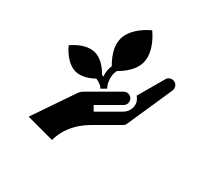Unlocking the Grape Value Chain in Dodoma
Helping farmers improve grape quality for the growing Tanzanian wine industry
Project Lead: Dr. Tomer Malchi
Grape production an important agricultural sub-sector in the Dodoma Region of Tanzania. Grapes were initially introduced in Tanzania in 1938 by Catholic Missionaries and started to scale up to surrounding villages by 1963. The region of Dodoma has over 1,400 farmers on over 1,500 hectares who produced close to 10,000 tons of grapes in 2018. Around 6,500 tons of these grapes went towards wine production. Improvements in grape cultivation along with the introduction of irrigation technology and integration of FEW nexus energy solutions will aid in the sustainable development of this growing sector.
CultivAid’s staff and the AITEC facilities in Dodoma have established an extension service and training program for grape producers. The program collects data and provides on-going reporting on production; prioritizes high potential areas and clusters such as those with irrigation infrastructure or sites that have high groundwater and thus high potential for production; introduces various technologies and solutions that will be validated and scaled up; tests grape varieties under various regimes (irrigated versus non-irrigated) and in different locales in Dodoma, and provides locale-specific recommendations.
CultivAid's ‘Unlocking the Grape Value Chain’ improves local grape production by implementing evidence-based interventions which target both grape farmers and wine producers. The growth of Dodoma’s wine industry is dependent on improvements in grower’s capabilities, in terms of quantity and more importantly in the quality. Farmers require enhanced knowledge, technologies, and access to improved agricultural inputs to supply the market with growing demand for grapes. Formal linkages between farmers and wineries is critical to the value chain.
Funding from the Global FEWture Alliance has enabled the establishment of an additional training site, which amplifies the impact of the program.
Specific program objectives:
- Increase the profit margin of farmers engaged in grape production
- Enhance the quality and quantity of grape yields for farmers in program
- Transfer professional agronomic knowledge of pruning, irrigating, soil fertility, pest management, and pesticide use to grape farmers
- Extension:
- Operate 3-4 training and demonstration sites for one growing season
- Implement trainings at sites throughout the Dodoma region
- Data collection: monitor 300 grape farmers in the Dodoma region, with 60 farmers in continuous data collection
- Train local experts who assist in community capacity building
- Increase the number of contract farmers working with local wineries
Fulfills Global FEWture Alliance Objectives:



